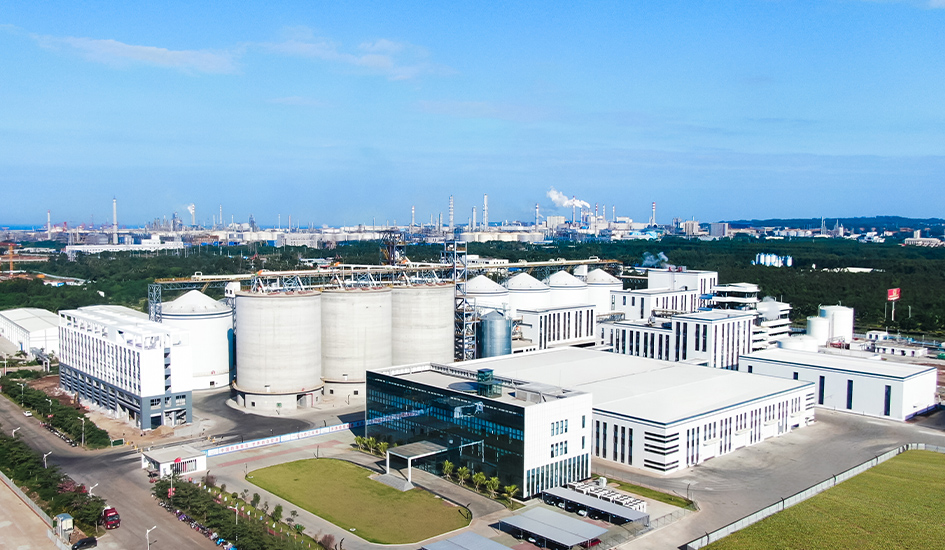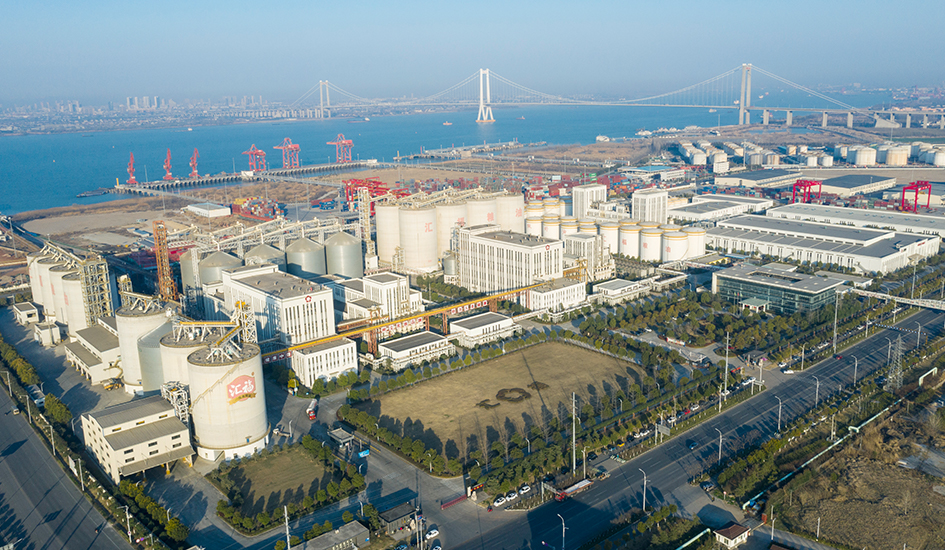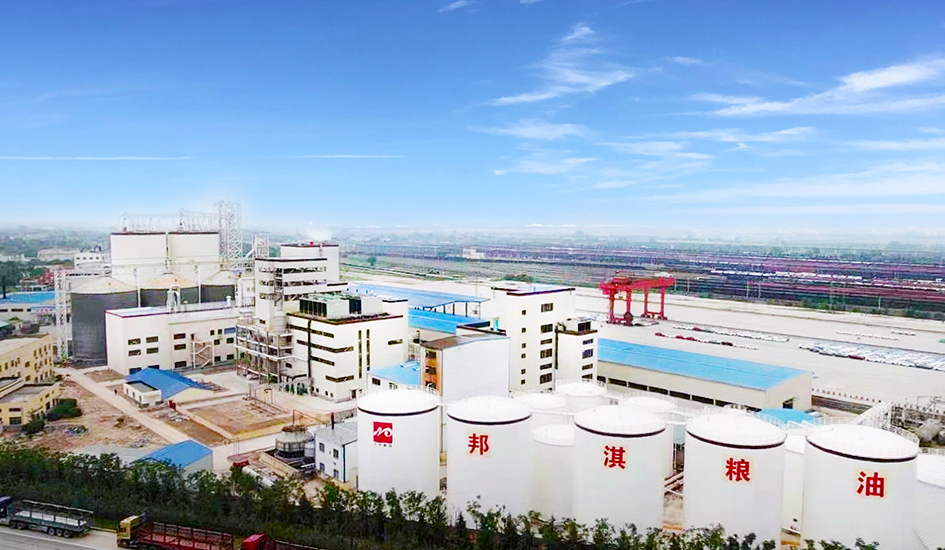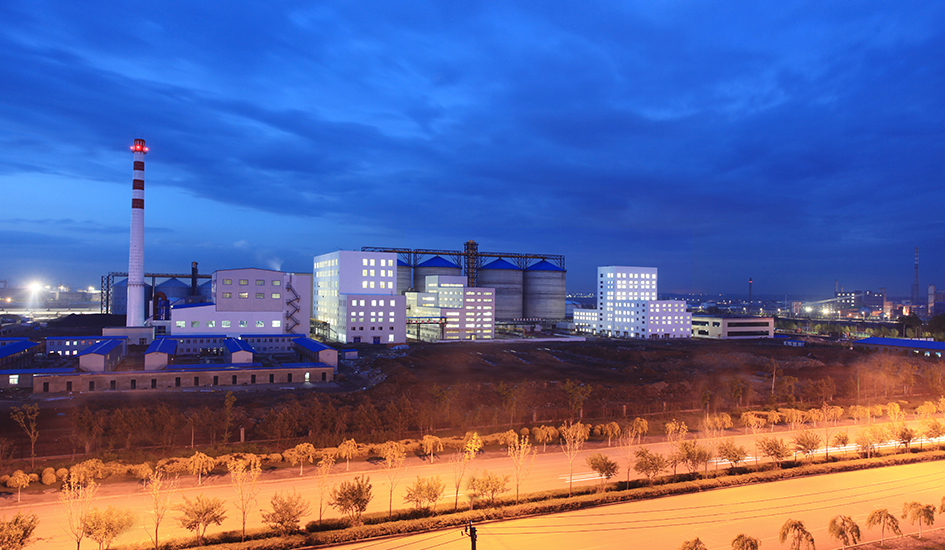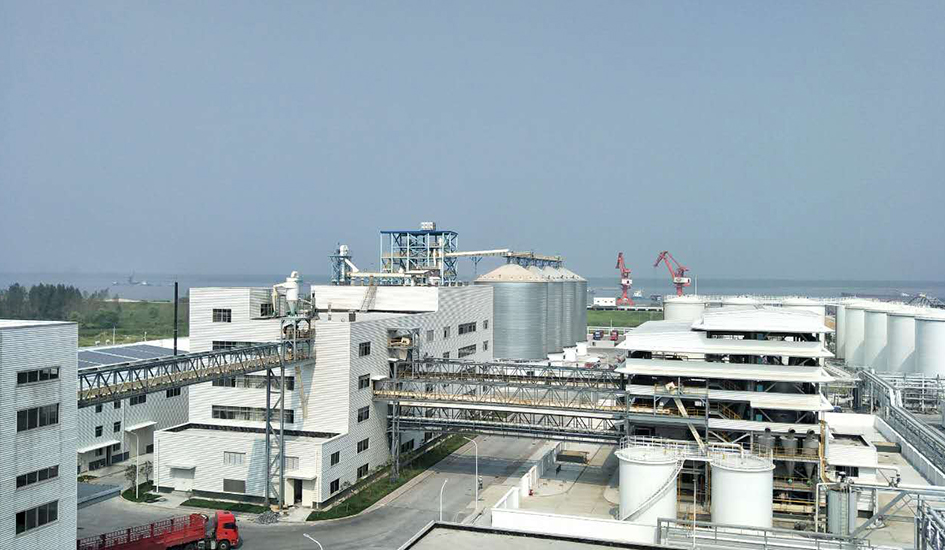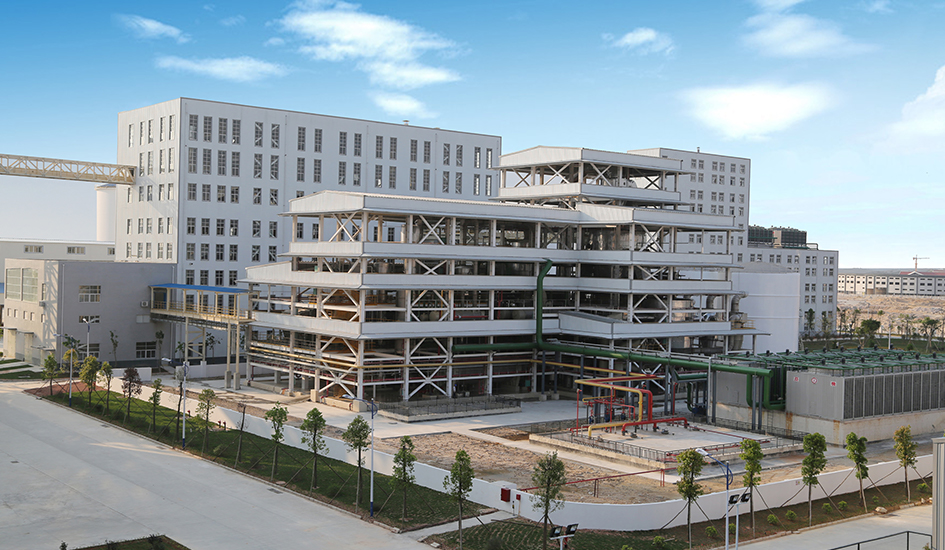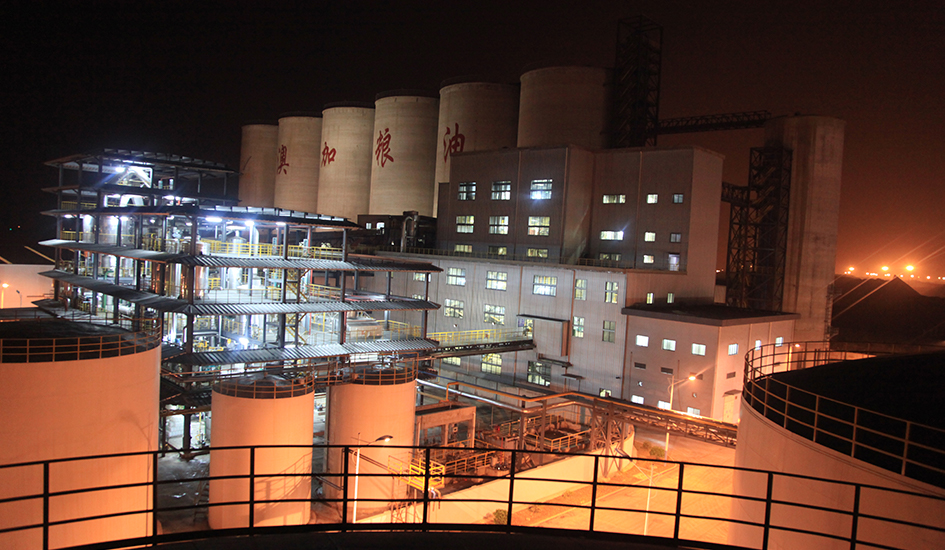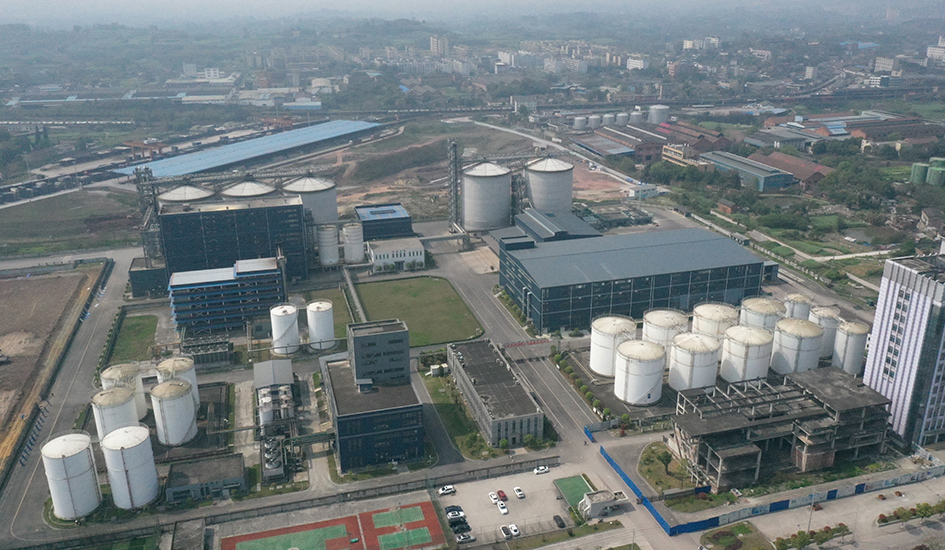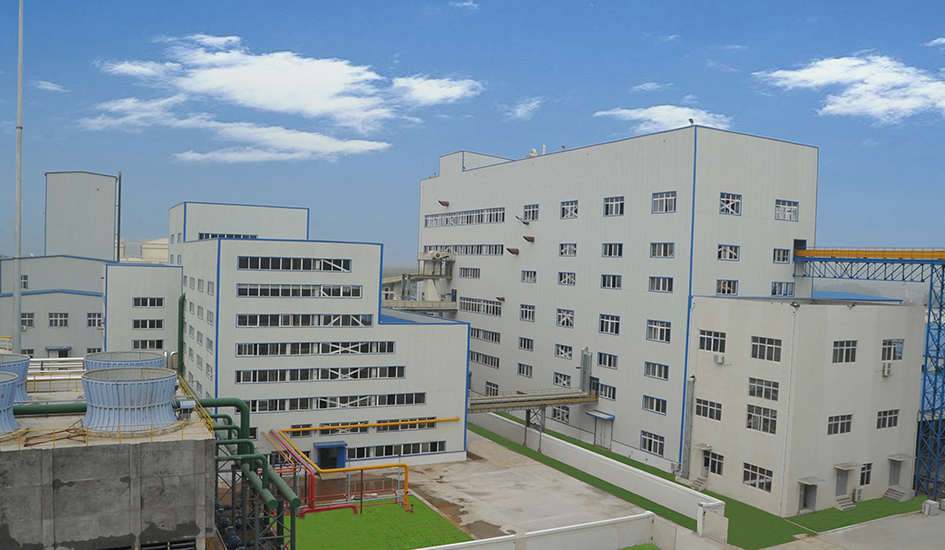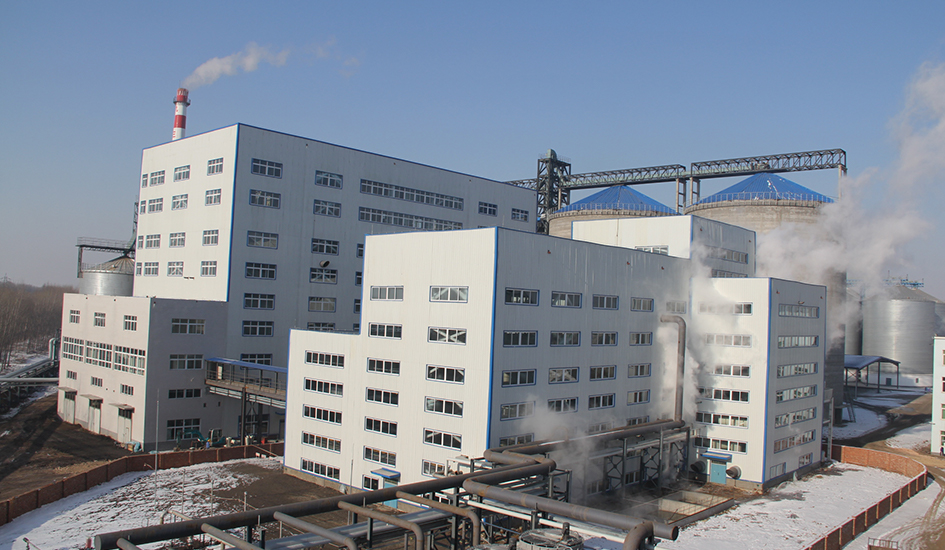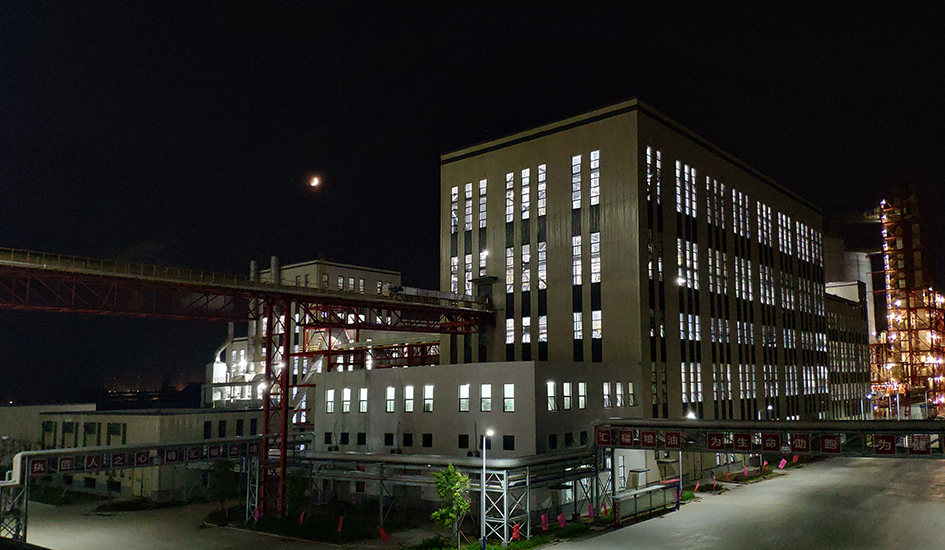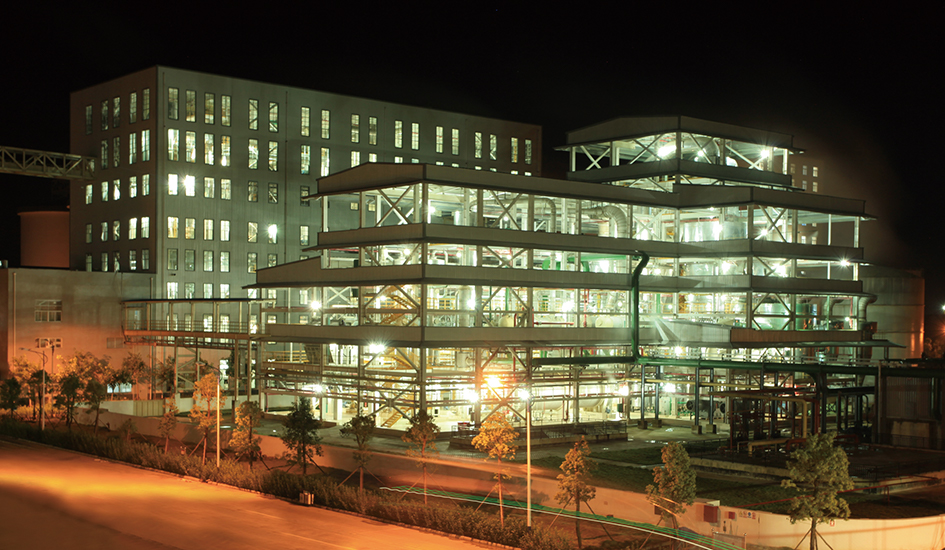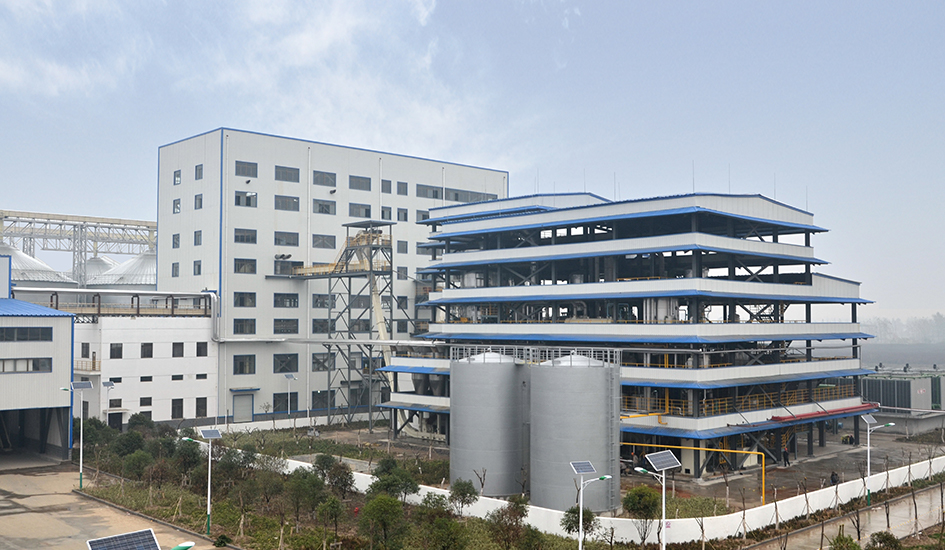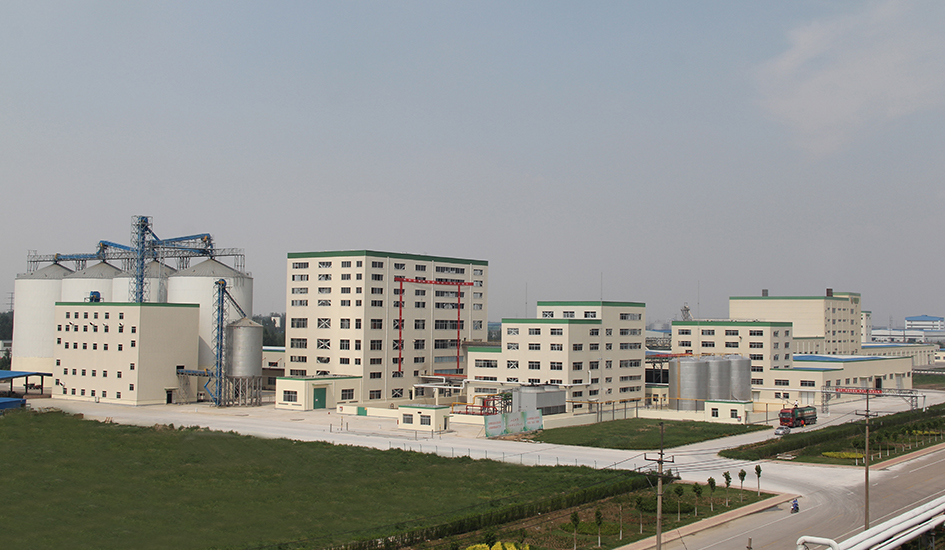

Refining
We can provide edible oil refining plant equipment with capacity ranging from 50 t/d to 4,000 t/d for soybean oil, rapeseed oil, sunflower seed oil, cottonseed oil, rice bran oil, palm oil, corn oil, peanut oil, linseed oil, animal fats and oils, chicken fat, butter, fish oil and etc.
Refining is the last step in edible oil processing. We are committed to making every drop of oil safe, healthy and nutritious. Value-adding by-products may be produced from processing stages like Degumming, Neutralization, Bleaching, Dewaxing/Winterization and Deodorization.
Worldwide, Myande has supplied more than 600 oilseed crushing lines and more than 200 cooking oil refinery lines, including 50 cooking oil refinery production lines with capacity above 800t/d and 30 oil refinery production lines with capacity above 1,000t/d.
Nano Cavitation System Technology & Complete Equipment
1. Energy Efficient & Quality Enhancing:
Myande is the first in the industry to apply nano cavitation technology to acid conditioning processes for oil refining. Based on the type and quality of crude oil, users can flexibly choose between acid or alkali enhancement routes to achieve optimal refining performance. Compared to traditional methods, this system significantly reduces acid and alkali consumption, improves oil yield, and effectively removes contaminants such as zearalenone, aflatoxins, and other trace harmful substances.
2. Proprietary Technology:
With over 10 authorized patents, including 3 invention patents, the system has been successfully adopted by numerous oil refining enterprises. It offers stable operation, mature technology, and delivers remarkable value for customers.
"Double Zero, Double Low" Deodorization Technology & Complete Equipment
1. Mild Processing for Higher Efficiency & Quality:
Our advanced deodorization system significantly reduces processing temperature and time, achieving over 80% heat recovery efficiency and zero steam consumption in the vacuum system. The result is a highly energy-efficient solution with harmful substances such as trans fatty acids (TFA), glycidyl esters (GEs), and 3-MCPD esters well below EU regulatory limits.
2. Proprietary & Proven Technology:
This system is backed by more than 10 authorized patents, including 4 invention patents, and has been successfully implemented in dozens of large-scale oil processing plants. It achieves trans fatty acid levels below 0.3%, with stable operation, mature technology, and significant customer benefits.
Degumming
Degumming is to remove impurities such as phospholipids, gum, protein before oil storage and transportation. Gum yielded in the degumming process can be used as raw material for producing lecithin. We provide solutions and equipment for water degumming, dry degumming, special degumming, enzyme degumming and etc.
Neutralizing
The purpose of neutralizing is to remove free fatty acid, phospholipids, gums or solids in edible oil by using caustic soda. We offer solutions featuring higher oil yield and lower energy consumption.
Bleaching
Bleaching process removes coloured matters, residual pesticides, metal ions by mixing bleaching earth with edible oil. Myande pre-bleaching process allows for better bleaching effect while using less bleaching earth.
Main Equipment: Bleacher
Deodorizing
Deodorizing, the most critical step in the refining process, effectively removes odorous substances, raises smoke point of oils, improves the stability, color and quality of oils, and removes fatty acids, peroxides, polycyclic aromatic hydrocarbons, residual pesticides, etc. Myande deodorization process retains more active nutrients while producing less harmful substances such as trans fatty acids and trichloropropanol. Myande also provides fatty acid two-stage collecting system to improve the economic value.
Main Equipment: Combined Type Deodorizer

Dewaxing
Some kinds of oils contain wax, which affects digestion and flavor and shortens shelf life in winter. Therefore it is necessary for dewaxing. We have developed a more efficient continuous crystallization technology that has a high crystallization efficiency and excellent dewaxing.
Vacuum System
Deodorization vacuum system is not only crucial to deodorization effect, but also directly related to steam consumption, sewage discharge and electricity consumption.
We provide a freezing vacuum system with only 10% steam consumption and sewage discharge of a traditional vacuum system.
We provide a surface condensing vacuum system with only 25% steam consumption and sewage discharge of a traditional vacuum system.
Application of Myande cooking oil refinery machine


Myande - No. 1 market share in China’s oils & fats engineering field
In 2024, China’s oilseeds production reached 73.9 million tons — a 1.6% year-on-year increase. From domestic oilseeds alone, 14.1 million tons of edible oil were produced (+3.9% YoY), raising the country’s edible vegetable oil self-sufficiency rate to 34.2%. 📈
Within this growth, Myande continues to play a pivotal role:
🏭 Total oilseed crushing capacity from projects we’ve delivered in China: 66.5 million tons
🛢️ Total oil refining capacity from projects delivered: 15.3 million tons
For years, Myande has maintained the No. 1 market share in China’s oils & fats engineering equipment sector — a reflection of our long-term commitment to innovation, reliability, and customer success.

They trust and choose Myande
More than 1,200 complete plants have been supplied under Myande’s name in over 80 countries since 2003.
Behind every successful project is a great team. Our team is comprised of skilled individuals that share one common goal – Help our clients succeed.

What can we do for you?
We focus on supplying one-stop engineering service covering general layout plan, process design, R&D, equipment manufacturing, automatic control system, data integration, installation, supervision, commissioning, training and etc.
Our custom solutions come from a deep understanding of your needs, and we have the capability to complete each project from the design of the initial concept to manufacturing, installation, commissioning and delivery.
Solution Tailored to Your Needs

General Layout Plan
With a land prepared, the next thing you should consider is planning the general layout, which is a crucial foundation of a sustainable and cost-effective manufacturing.
Turn to us for help and we will present you the design for your plant by considering water, steam, electricity supply and etc.

Process Design
Combining our engineering expertise, industry know-how and practical skills with your knowledge, we provide the optimized and customized process design for your plant.

3D Plant Design
On the basis of plant layout design, combined with real situation, we can design a three-dimensional model of the entire plant. All the equipment, piping and instruments, any detail can be shown in the model, not only allowing you to have an intuitive understanding of the plant, but also providing overall information support for plant construction, equipment installation and future expansion.

Automatic Control System
We offer economical and most effective process automation solutions for the entire production line. Our RES automatic control system is developed based on PLC/DCS system.

Data Integration
From the perspective of the overall operation of the factory, Myande intelligent data integration management system collects basic data from raw grain procurement, warehousing, processing, inventory, sales and logistics, relying on the interconnection network system of each workshop. It provides real-time, accurate and traceable data reports for the current storage, processing and shipping.

Equipment Manufacturing
We owns in-house manufacture base of more than 130,000㎡ integrating R&D, production, project management which represents advanced engineering capability in the industry.

Installation and Commissioning
After finishing the installation of all machines, we offer on-site commissioning service to ensure compatible functioning.
Every move of the machine needs strong technical support from our experienced engineers. The only principle is that you can start manufacturing right after the commissioning.

Training and After-sales Service
Myande 360° Service Portfolio covers all your needs throughout the life cycle of your project. By minimizing your total cost of ownership, we help you stay ahead of the competition.
About Myande
Myande Group is a globally leading supplier of complete plants, equipment, and services for Oils & Fats, Starch & Derivatives, Fermentation, Evaporation & Crystallization, Material Storage and Handling and Smart Factory industries.
Myande Group currently has 1,300+ employees including 600 technical staff and 700 manufacturing workers. More than 1,200 complete plants have been supplied under Myande’s name in over 80 countries since 2003.
World-leading manufacturing base
In-house manufacture base of more than 130,000㎡ that integrates R&D, production, and project management, representing world-class engineering capability in the industry.

No Compromise on Quality
We are highly committed to Quality Assurance.
Our facilities and processes adhere to the highest local and international industry standards and certifications and are audited regularly for compliance.
With a global quality management system, we ensure that our customers all over the world receive high-quality, reliable products and solutions. We are well aware that our equipment have to function safely and efficiently for decades.
To effectively carry on the spirit of artisanship, improve the overall quality of front-line employees, we hold the “Workmanship Skills Competition" every year.



Certificates & Patents
At Myande, innovation is the result of the total process of developing an idea into a product or a new way of working which adds value to the business.
Over 500 registered patents and utility models demonstrate the company's innovation potential.

Our Global Presence
We focus on supplying one-stop engineering service covering general layout plan, process design, R&D, equipment manufacturing, automatic control system, data integration, installation, supervision, commissioning, training and etc.
Our custom solutions come from a deep understanding of your needs, and we have the capability to complete each project from the design of the initial concept to manufacturing, installation, commissioning and delivery.
You might also be interested in
Related Products
Lifecycle Service
Technical expertise and innovative products form the basis of your success. But we offer you even more: our extensive range of services gives you optimum support for your requirements and objectives in the long term.
Myande News & Insights
Myande Refinery Engineering – Chinese Confidence and EU Standards
Worldwide, Myande has supplied more than 500 oilseed crushing lines and more than 150 oil refinery lines, including 30 oil refinery production lines with capacity above 800t/d and 20 oil refinery production lines with capacity above 1,000t/d. The picture below shows location refinery plant equipment Myande has supplied. Product indicators better than EU standard The World Health Organization proposes that by 2023, the global processed food system should gradually remove trans fatty acids to maintain our healthy diet; The European Commission (EC) has also formulated higher requirements for the content of glycidyl ester (GE) and trichloropropanol ester (3-mcpd) (GE≤1mg/kg, 3-mcpd ≤1.5mg/kg). In response to market demand, Myande has been capable of producing high-end and high-quality healthy oil by cooperating with scientific research institutions and in-depth practice with customers. SGS, a well-known third-party testing agency, recently tested sample oil taken from a refinery plant equipment supplied by Myande. The test report states “major indicators such as plasticizer, glycidyl ester (GE), trichloropropanol ester (3-MCPD), zearalenone and others were all better than EU standards”. Sophisticated technology and equipment to ensure low-cost operation Myande has developed numerous proven technologies and processes in oil refinery. These include dry freezing and vacuum condensation and equipment, process water recycling, heat energy recovery, pre-bleaching, cleaner steam supply, exhaust gas absorption and mechanical vacuum system. These corporate specific technologies have maintained stable and reliable running and achieved breakthroughs in energy conservation and emission reduction. Myande have also developed the following key equipments matching with above technologies: a new type of combined deodorizer, falling film heat exchanger, falling film type final heater, freezing condenser and others. TOP 10 of the global grain and oil processing enterprises and domestic large grain and oil processing enterprises have selected Myande falling film final heat exchangers for many times due to its remarkable energy-saving effect. Through the comprehensive utilization of the latest technology and equipment, Myande has reached the international advanced level in energy consumption. Ton oil consumption of soybean oil refining (including filter purging and utilities) Steam: guarantee index ≤22kg/t oil (minimum: 19kg/t oil) Power consumption: guarantee index ≤12kwh/t oil (minimum: 9.6kwh/t oil) Gas consumption: guarantee index ≤2.2Nm³/t oil (1.9Nm³/t oil) Myande dry freezing and vacuum condensation technology adopts unique deicing technology with Zero steam consumption. The pre-bleaching process can reduce 50% clay consumption if it’s corn oil. The unique variable temperature deodorization process can effectively control the content of trans fatty acid (TFA), glycidyl ester (GE) and trichloropropanol ester (3-MCPD), also the formation of benzo pyrene, plasticizer, red alenone and other harmful substances, at the same time, the process has lower pressure drop, less steam consumption and more flexible and adjustable deodorization time. The falling film type vacuum energy saver has been adopted and verified by more than 100 projects with heat recovery efficiency ≥80%. The two-stage collecting system can collect the deodorizer distillates with two kinds of VE concentrations by precise control of temperature and classification, so as to improve the economic utilization value. The by-product revenues of a 1000t/d soybean oil refinery project will increase by more than RMB 1 million per year. Adopting new falling-film final heater can effectively control the formation of trans fatty acids (TFA). Myande refinery projects Adhering to the enterprise mission of “With professionalism, we manufacture high quality mechanical products and supply complete solutions that enable our clients to succeed. We are dedicated to create a bright future for us as well as our clients”, Myande firmly contributes to the development of Grain & Oil industry and food safety, making every drop of oil safer and more nutritious, and making every Chinese healthier.
COFCO 5,000TPD Soybean Crushing Line
Recently, a 5,000 t/d soybean crushing line supplied by Myande to COFCO Donghai Grain and Oil Industry (Zhangjiagang) Co. Ltd started production successfully and has been yielding qualified products since then. Starting from workshop preheating, it took mere 6 hours to yield crude soybean oil and meals with the complete equipment line running stably with highly desirable indicators. Founded in May 1993, COFCO Donghai, COFCO’s key important oilseed processing base, has grown into one of the largest and most advanced integrated grain and oil processing bases in the world. Owning numerous well-established brands, such as "Fook Lam Moon " and "Sihai", its food and oil products enjoy a good reputation across China. COFCO’s other four oilseed crushing lines were all supplied by foreign engineering companies in the past. This fifth crushing line, with capacity of 3,000t/d rapeseed and 5,000t/d soybean, is the largest in terms of capacity. Core equipment of the entire production line is manufactured and supplied by Myande. The successful test production of the soybean processing line fully demonstrates Myande's strength in the oils & fats engineering. With its business concept of ”passion, precision and honesty”, Myande is dedicated to manufacturing high quality mechanical products and supplying complete solutions that enable clients to succeed.
Edible Oil Refinery Projects
Over the past decade, Myande has undertaken and completed more than 30 refining projects, dealing with oil from soybean, corn germ, rapeseed, peanut, rice bran and other oilseeds. These include 6 refinery projects with a capacity of more than 1,000TPD. Myande also has constructed many refinery lines dealing with special oils, such as tea seed oil, sesame oil, cottonseed oil, etc. Technological innovation featuring safety-first concept In addition to the conventional acid value and colour of the products, modern vegetable oil refining enterprises give priority to index that affects nutrition value and consumer health, such as trans-fatty acids. Based upon this market trend, Myande optimized some production equipment and process technology. Trans-fatty acids are usually produced in the vegetable oil deodorization section due to high deodorization temperature and long deodorization time. According to this characteristic, Myande has developed a new type of parallel bidirectional pumping vacuum combined deodorizer. By using this technology, its packing tower and plate tower have the highest degree of vacuum to make sure that quality of finished oil remains the best and the amount of trans-fatty acid significantly decreases at a lower temperature and within shorter deodorization time. Energy saving, Environmental protection The modern vegetable oil refining enterprises attach importance to the reduction of production cost. They focus on the plant power consumption, steam consumption, fuel consumption, raw material consumption which influence the production cost. According to customer demand, Myande has designed and developed a new type of deodorization economizer and freezing-condensation deodorization vacuum system. At the same time, the whole production line is equipped with a complete automatic control system. Because of the application of the above technologies, production electricity consumption, steam consumption and fuel consumption have been reduced. 1) The new type of vacuum economizer with the characteristic of effective energy saving and high heat recovery efficiency Myande refinery projects adopt this new type of vacuum economizer to have the heat recovery of deodorized oil in the deodorization section. It adopts thin film technology to realize effective heat recovery to the maximum extent. At the same time, this structure provides the stripping effect under high vacuum, which helps to keep the oil quality and reduce the generation of non-nutritive substances such as trans-fatty acids. 2) Freezing - condensation deodorization vacuum system with the characteristic of energy saving, environmental protection and low consumption In the refinery projects, Myande adopts this new type of freezing - condensation deodorization vacuum system. This system is the most advanced vacuum system applied in the deodorization section at present. Compared with other types of vacuum systems, it not only reduces the size of vacuum equipment and reduces plant area, but also protects the environment because of the reduction of wastewater. The system is a fully automated operation. It runs stably during the operation. Under the circumstances of the lowest gas consumption and power consumption, it maintains the highest degree of vacuum deodorization system.
900TPD Multi Oils Refinery Project for HVO Feedstock Pretreatment
Recently, a methanol and water recovery facility designed and supplied by Myande to a client in Malaysia passed the acceptance tests and was put into operation. One prominent feature of this facility lies in low-carbon production process from used cooking oil (UCO) to biodiesel. Its successful completion indicates entry of Myande’s biodiesel technology into the global market. In addition to distillation of methanol and glycerin in the production line of transesterification and synthesis of biodiesel by enzymatic esterification, this facility is designed to recover methyl alcohol and glycerol from the wastewater of biodiesel plant so as to achieve full recovery and utilization of beneficial substance and obtaining distilled water that can be directly reused to the previous process section to achieve “zero-discharge of wastewater” from the biodiesel plant. In view of the different characteristics of two raw materials in the system, based on the comprehensive consideration of originality, progressiveness, stability, long-term operation cost and TCO (Total Cost Of Ownership), Myande technical team has innovatively developed a new type of treatment process and equipment after repeated discussions, and finally stood out in the competition with European suppliers, winning the bid for the project and the trust from the customer. At present, the new process has also successfully obtained the national patent. With the joint efforts of both parties, all commissioning indicators have achieved the anticipative target and requirement. Myande has not only created considerable extra operation profits for the customer, but also provided support for the customer to maintain technical advancement and retain its competitive edge in the industry. In recent years, with increasing amount of waste oils & fats, more and more countries endeavor and vie to recycle and utilize waste oils & fats to produce biodiesel, transferring waste oils and fats to renewable energy. In response to the national call of "Reach CO2 Emission Peak by 2030 and Carbon Neutrality by 2060", Myande has consistently intensified research and development in oils & fats deep processing technology and equipment. With increasingly strong R&D and innovation capabilities, Myande is in a leading position in research and development of biodiesel technology and equipment. Myande Group actively responds to the national "Belt and Road Initiative " and "Go Global" strategy, and are dedicated to grow into a globally respectable market leader in various specialized fields.
2,000TPD Rapeseed Crushing Plant Launched
Recently, a 2,000 t/d rapeseed crushing plant built by Myande Group for Daodaoquan Grain and Oil Co., Ltd. started operation successfully and started to yield qualified rapeseed oil and meal. Daodaoquan Grain and Oil Co., Ltd. is a comprehensive oil processing enterprise integrating production, scientific research, trade, warehousing and logistics of edible vegetable oil and its related by-products. This new rapeseed crushing plant incorporates a wide range of Myande core equipment possessing independent intellectual property rights, including the E-type extractor, hydraulic flaker, DTDC, conditioner, and other key equipment. To achieve flexible material incoming and discharging, Myande CCJL series sweep auger and CQJL series reclaimer are used. In addition, advanced energy-saving technology, negative pressure draining technology and intelligent safety technology are used to ensure the stable operation of the entire production line and excellent product index. With the concept of "creating the best performance for our customers", Myande cooperates with DaoDaoQuan to build a modern, energy-efficient, and environmentally friendly factory.
Future Trend and Market Prospect Analysis of Edible Oil Industry
With rapid economic development and increasing consumption levels, the demand for edible oil is constantly growing. However, the oils & fats industry is facing more and more challenges as consumers become more concerned about health and safety. This paper aims to conduct an in-depth study and analysis of the current situation, development trends, challenges, and opportunities in the edible oil industry, in order to provide useful insights and recommendations for those who are interested in the industry. Four points influence the price of cooking oil most: 1. Production costs: The production costs of edible oils include various factors such as planting, harvesting, extraction, processing, packaging, and others. The cost of raw materials is a key factor that influences production costs, and the fluctuation in raw material prices directly impacts the price of edible oils. 2. Seasonal factors: The production of some edible oils is seasonal, such as olive oil and peanut oil. Seasonal factors affect the supply-demand balance and thus influence the price. 3. International market: Edible oils are one of the main products in international trade, and the supply-demand balance and price fluctuations in the international market also affect domestic market prices. For example, a rise in international oil prices may cause an increase in the price of imported edible oils. 4. Policy regulations: Changes in policy regulations can also impact the price of edible oils. For example, changes in the tariff or export rebate policies imposed on imported edible oils by the government can affect market prices. The price of edible oils is influenced by various factors, including market supply and demand, production costs, policy regulations, and other factors. The price changes are determined by various factors, making it a complex and dynamic market. The future developing trend of edible oil industry: 1. Sustainable and responsible sourcing: With increasing consumer awareness and government regulations on environmental protection and human rights issues, there is a growing demand for sustainably and responsibly sourced edible oil raw materials. This trend is expected to continue in the future, and companies will need to adapt by implementing more transparent and ethical supply chains. 2. Diversification: As demand for healthier and more diverse cooking oils increases, there will likely be a shift towards a wider range of edible oil raw materials, such as avocado, almond, and pumpkin seed oil. This trend will provide opportunities for new players to enter the market and for existing players to expand their product lines. 3. Technology-driven innovation: Advances in technology, such as genetic modification and biotechnology, are likely to play a key role in shaping the future of edible oil production. These innovations could lead to new, more efficient methods of production, as well as the creation of new types of oils with unique properties and health benefits. 4. Price volatility: The price of edible oil raw materials is influenced by a range of factors, including weather conditions, geopolitical tensions, and changes in demand. As a result, the price of edible oils can be volatile, which can have significant implications for both producers and consumers. To mitigate these risks, companies will need to focus on diversification and risk management strategies. Overall, the future of edible oil raw materials and edible oil will be shaped by a complex set of factors, including changing consumer preferences, regulatory pressures, technological innovations, and market dynamics. Companies that are able to navigate these challenges and adapt to changing trends will be well positioned for success in the future. Currently, the world's largest cooking oil producers include Cargill, Archer Daniels Midland (ADM), Bunge, Wilmar International, and Louis Dreyfus Company. The growth rate of the global edible oil market is projected to be moderate but steady over the next few years, with a CAGR of around 3.5% from 2023 to 2026. The increasing demand for healthier cooking oils, growing population, and rising disposable incomes in developing countries are expected to drive the growth of the market. In terms of production capacity, the top edible oil producing countries include China, India, the United States, Brazil, Indonesia, and Malaysia. These countries account for a significant share of the global edible oil production capacity, with China and India being the largest producers. However, the market is also becoming increasingly competitive, with new players entering the market and existing players expanding their operations. This trend is expected to continue in the future, driven by changing consumer preferences and the need for sustainable and responsible sourcing. Overall, the global edible oil market is expected to remain dynamic and evolving, with significant opportunities for growth and innovation. Four potential trends for edible oil processing equipment and technology: 1. Automation and digitization: Advances in automation and digitization are transforming the way that edible oil is produced, with increasing use of sensors, artificial intelligence, and big data to optimize production processes and improve product quality. 2. Sustainability and energy efficiency: With growing concerns about environmental sustainability and energy consumption, there is a trend towards more energy-efficient production processes and the use of renewable energy sources in edible oil production. 3. Health and nutrition: As consumers become more health-conscious, there is a growing demand for edible oils that offer specific health benefits, such as those that are high in omega-3 fatty acids or low in saturated fats. This has led to the development of new processing techniques, such as cold pressing and enzymatic modification, that can preserve or enhance the nutritional value of edible oils. 4. Safety and quality control: With increasing regulatory scrutiny and consumer awareness, there is a growing focus on ensuring the safety and quality of edible oils. This has led to the development of new testing and monitoring technologies, such as near-infrared spectroscopy and gas chromatography, that can accurately measure the composition and purity of edible oils. It presents both opportunities and challenges for companies that have not yet entered the edible oil production industry, so here are some potential factors to consider when entering this market: Opportunities and Challenges: Opportunities: Growing demand: The demand for edible oils is expected to continue to grow due to increasing global population, changing dietary habits, and rising disposable incomes in developing countries. Diversification: The market for edible oils is diverse, with a wide range of oils available to suit different culinary and health needs. This provides opportunities for companies to differentiate themselves by offering unique products. Technological advancements: Advances in technology, such as automation and precision agriculture, can improve efficiency and reduce costs in the production process. Challenges: Competition: The edible oil industry is highly competitive, with many established players already in the market. New entrants may struggle to compete with these established companies in terms of scale, brand recognition, and market share. Price volatility: The price of edible oils is subject to a range of factors, including weather conditions, geopolitical tensions, and changes in demand. This can make it difficult to predict costs and plan for long-term profitability. Environmental and social responsibility: There is growing consumer and regulatory pressure on companies to ensure that their supply chains are sustainable and socially responsible. This can require significant investments in traceability, ethical sourcing, and sustainability initiatives. Overall, while there are certainly challenges to be aware of, there are also opportunities for new entrants to the edible oil production industry, where success will require careful planning, strategic decisions and a willingness to adapt to changing market conditions.
Myande Awards 2022 “Spring Sunshine” Scholarship
In order to motivate employees' children to study hard and to enhance employees’ sense of belonging and happiness, on August 19, Myande held 2022 Myande Spring Sunshine Education Scholarship ceremony. Mr. Wangmu, vice chairman and Mr. Mao Weijiang, director in charge of manufacturing, participated in this ceremony and on behalf of the company presented scholarship stipends to children of Myande employees who are enrolled by four-year universities this year. In his speech, Mr. Wang highlighted that Spring Sunshine Scholarship is one of several company welfare benefits. It represents the company’s vision of moving forward with its employees and creating a better future together, and it reflects the company's care for the education of its employees' children and its high sense of social responsibility.
Contact Us
Contact us to see how we can help you grow your business.
Find the solution to an optimized future.
